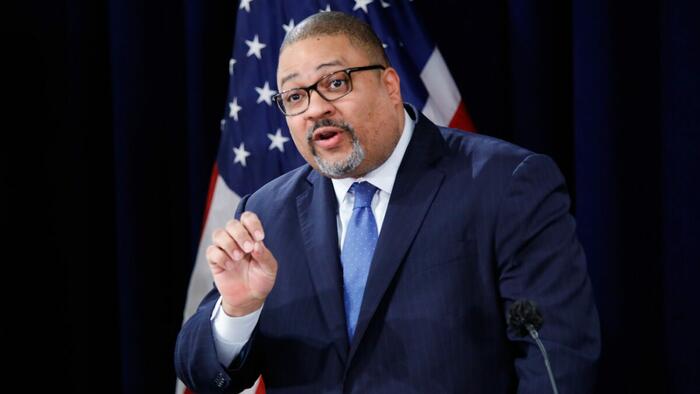Manhattan District Attorney Alvin Bragg is navigating a complex legal situation involving former President Donald Trump, particularly regarding the hush money case linked to payments made to an adult film star. Amidst Trump’s impending return to the White House as president-elect, Bragg’s office is determined to keep the legal proceedings from being dismissed outright. Recent court filings indicate that while the prosecutor’s team is opposed to fully terminating the case, they are open to the possibility of pausing it while Trump serves his upcoming term until 2029. The brief released by prosecutors outlines a range of alternatives to maintain the case’s viability without dismissing it outright, and they argue that what is ultimately being sought is a resolution that respects both the legal process and the implications of presidential immunity.
In the existing court documents, Assistant District Attorney Christopher Conroy stressed that dismissing the indictment completely would be an extreme action given the various accommodations available. The idea of delaying sentencing until Trump leaves office or freezing the case while keeping the jury’s guilty verdict intact were proposed as reasonable alternatives. This opens the door for Trump to potentially face sentencing after his presidency, while simultaneously addressing the legal complexities that come with prosecuting a sitting or president-elect. Trump’s legal team, on the other hand, asserts that his current status as president-elect provides him immunity from prosecution, arguing that the case should be dismissed immediately due to this status.
Legal experts and the public are closely watching the developments as the case unfolds, especially under the jurisdiction of Judge Juan Merchan. Following Trump’s conviction by a Manhattan jury on 34 counts of falsifying business records, the timeline for sentencing became murky after it was postponed indefinitely. The possibility of Trump facing legal repercussions has become more remote now that he is on the verge of assuming the presidency again. The pending decision from Judge Merchan is crucial, as it will determine the procedural route the case will follow moving forward.
While there is an ongoing debate about Trump’s legal immunity as president-elect, state prosecutors contend that such immunity does not apply until he officially takes office. Consequently, they argue that legal proceedings could still move forward, potentially positioning Trump for sentencing before his inauguration on January 20, 2025. The prosecution’s stance is fortified by the premise that a jury verdict implies that the presumption of innocence no longer exists, despite the unique challenges presented by Trump’s political stature and the implications of his potential election.
The tension in this legal battle is palpable, as Trump’s attorneys claim that continuing prosecutorial proceedings during this transition period undermines his ability to govern effectively and manage other presidential responsibilities. They point to the urgency of allowing Trump to prepare for his upcoming term without the distraction of a pending legal case. In response, prosecutors assert that Trump is employing delay tactics intended to complicate the case. Conroy highlighted how Trump’s legal maneuvers contradict his arguments about the Supremacy Clause, asserting that it is hypocritical for Trump to seek adjournments while simultaneously arguing that the court should refrain from acting.
In the larger context, the case against Trump represents a significant moment in American legal and political history, raising questions about the intersection of law and presidential conduct. The ramifications of this case extend beyond the immediate legal challenges Trump faces; they provoke a broader debate about the accountability of elected officials and the limits of presidential immunity. As the situation unfolds, the legal community and the public await Judge Merchan’s ruling, which will set a precedent on how the legal system addresses cases involving high-profile political figures, especially in scenarios where the personal and political stakes are extraordinarily high.

